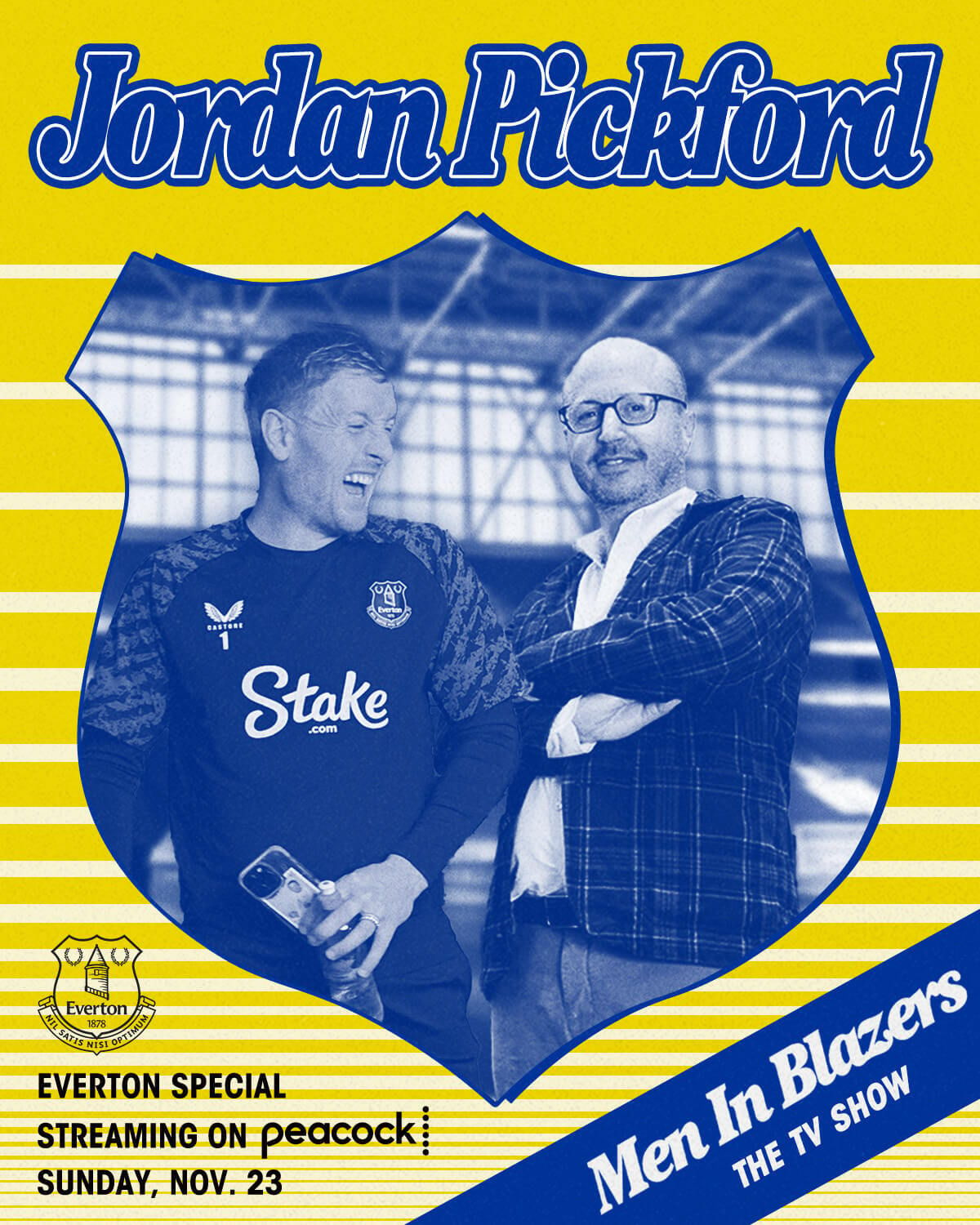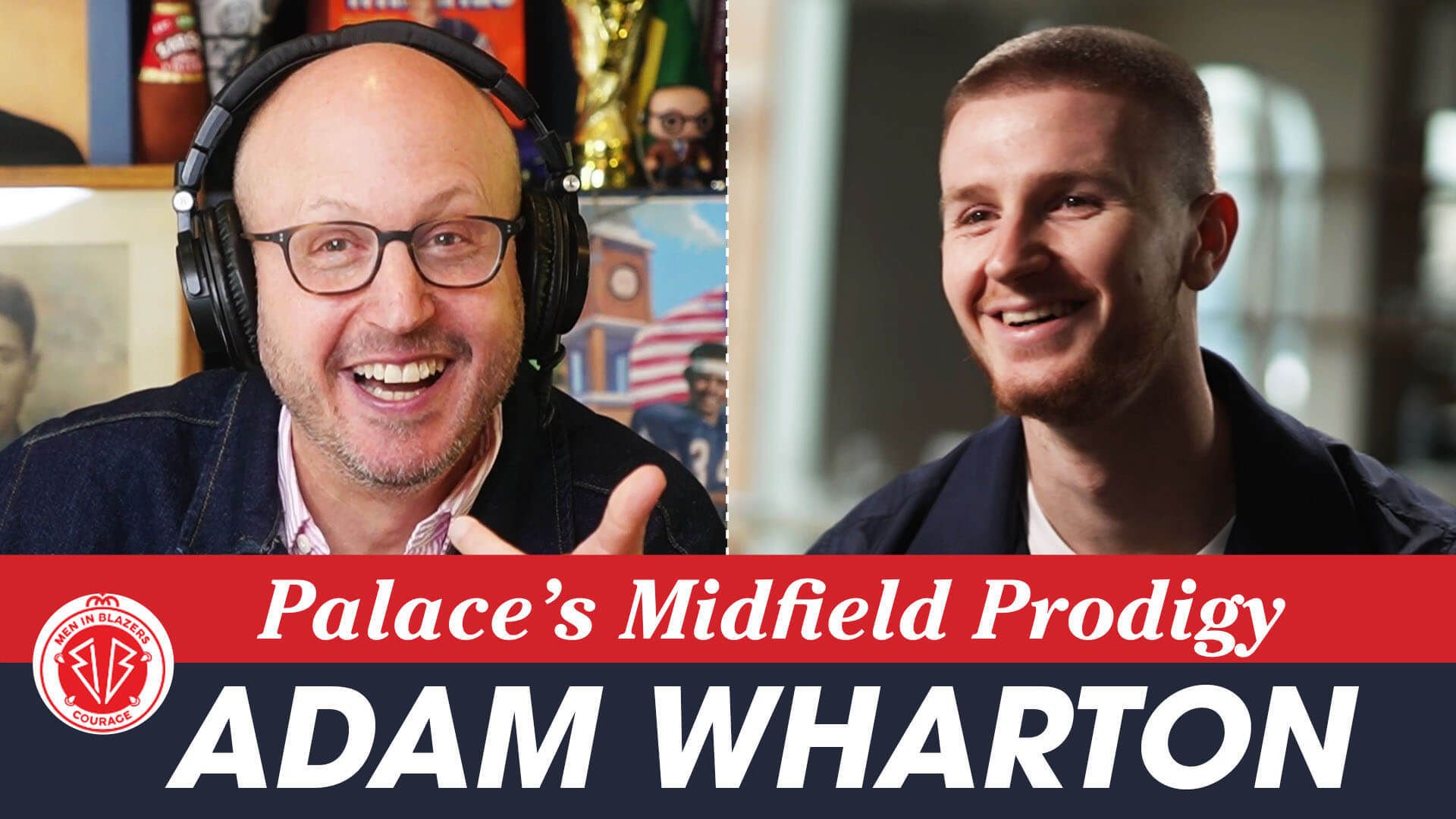Greetings from Yorkshire!
So this is what they mean by delayed gratification. Far sharper minds than mine would tell you that we have spent years creating – or maybe having created for us – a culture that prizes the immediate. Binge-watching. Same-day delivery. Just-in-time supply chains. Anything short of instant is unacceptable, as though the entire world has been designed by someone with the patience of a three-year-old.
And so maybe we should thank World Cup qualifying for reminding us that sometimes the slow burn is worth it. These last few days have offered us drama with the sort of deep flavor that can only be attained by marinating: the extraordinary few days Scotland has experienced, culminating in those wondrous goals from Kieran Tierney and Kenny McLean that confirmed an end to a 28-year wait for a place at the biggest show on Earth; Ireland’s last-second winning goal in Hungary, keeping alive that country’s hopes of a first World Cup since 2002.
That tension has not just been a European phenomenon. Concacaf’s finale was exhilarating, too: it is hard to know whether to be more uplifted by Curaçao, the smallest nation ever to play at a World Cup, or Haiti qualifying for next summer. Africa’s playoffs saw Nigeria, theoretically that continent’s greatest powerhouse, eliminated by DR Congo on penalties. This week’s newsletter is about the great truth this reveals, but we should remember, too, that every crescendo needs to be built.
The Magic of Jeopardy 🎢
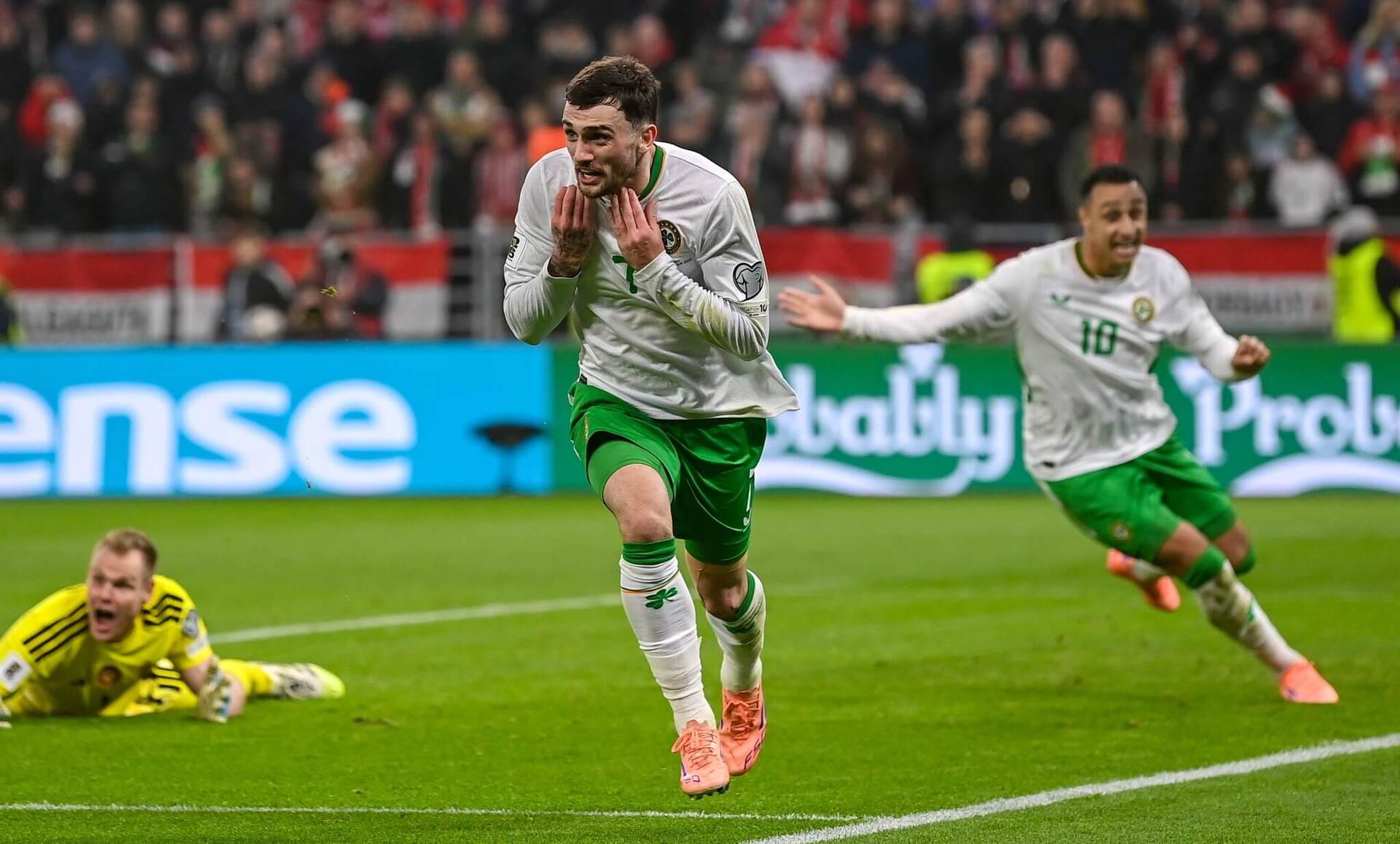
On Ireland’s national broadcaster, RTE, George Hamilton watched Caoimhin Kelleher roll the ball out of his feet and launch it forward in the general direction of Hungary’s penalty area. Ireland, he said, was holding its breath; it sounded like he could barely catch his. “One last throw of the dice,” he said, as Kelleher’s punt sailed through the air, his voice hoarse and urgent. “It’s all on this.”
A moment later, Ireland’s substitutes were pouring off the bench and streaming down the field. Troy Parrott had removed his jersey and was running, arms outstretched, letting out some sort of primal roar. High in the stands, a mass of green-shirted fans were broiling and writhing, pumping their fists in the air, hugging strangers. Hamilton sounded frazzled, exhausted, euphoric. “I’ve never seen anything like it,” he said, as his co-commentator, Ray Houghton, just screamed.
Last week, Major League Soccer decided to make two seismic changes to the way it operates. First, its games will no longer be behind a separate paywall on Apple TV. They will, instead, be available to all Apple subscribers – it is not clear quite how many of them there are, but reporting in The Athletic suggests it is more than 45 million people – from next year.
And second, more significantly, it will shift its season to align with the calendar of most major leagues in Europe. Rather than concluding in November, it will reach its climax in May. The advantage of this is that it will no longer face competition from the other form of football, which tends to dominate the domestic audience’s imagination as fall becomes winter. The disadvantage is that May is quite a big month, soccer-wise.
I’m not really qualified to make an assessment on the likely impacts of either of these moves, but both seem relatively sensible to me. Allowing more people the chance to watch your product is a good idea. So is ensuring that your potential audience does not have to make a difficult, and potentially damaging, choice between your output and something else.
Besides, what is interesting here is the pattern. MLS is not the only league – or, in fact, the only organization – that has recently made a bold decision in the name of expanding, or even retaining, its audience. This season, three competitions with much longer histories and, in all honesty, rather more prestige than MLS, came to the conclusion that they, too, needed to make significant changes to how people accessed their games.
La Liga, having already launched its own TV network, struck a deal with the podcast company Goalhanger to show its highlights on YouTube. (FIFA had done a similar deal during the Club World Cup). The Bundesliga, meanwhile, made one game a week available to fans of Mark Goldbridge’s YouTube channel. Ligue 1, the French top flight, found itself in rather different, and much more straitened, circumstances. Without a viable television deal on the table, it launched its own streaming service, one in which the clubs directly participate.
In all of these cases – including MLS – the logic is much the same. All of these leagues are effectively thinking as production companies, or as broadcasters, or as content creators. Their underlying belief is that by allowing more people to see their product, they will capture more eyeballs. This is undoubtedly true. The most significant roadblock to young people, in particular, watching football is not that TikTok has destroyed their attention span or that the games are too long, it is that it costs a fortune. It seems fairly obvious that an audience will not pay for something it does not yet know it wants.
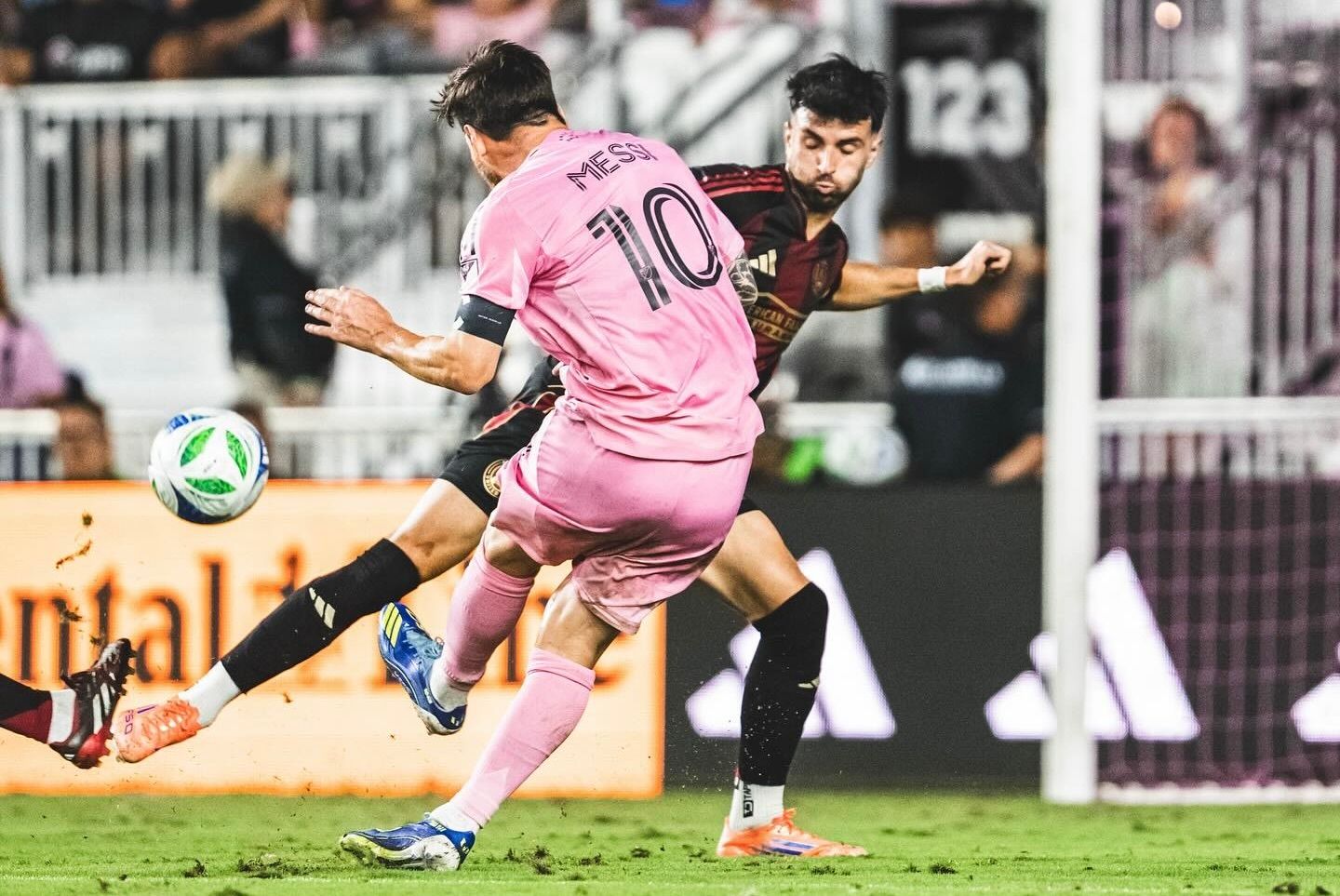
What they are not doing, by contrast, is thinking as sporting bodies. None of these moves – with the possible exception of MLS shifting its calendar – are designed, directly, to improve the product itself. In Europe, certainly, the leagues are of the view that such a motivation would be futile.
Economic reality means that none of them can compete, in a sporting sense, with the Premier League. That is where the best players, and the best coaches, are, and so it is where the best football is played. Nor do they have an obvious mechanism at their disposal to stop Bayern Munich, Paris St-Germain and the twin poles of the clásico from dominating their own domestic landscapes. There is no way of engineering the competitive balance that is such a crucial part of the Premier League’s appeal.
These last 10 days or so, though, have offered a valuable reminder that football’s appeal is not really rooted in quality. Ireland’s game with Hungary would not have won any points for style. It was not a technical masterpiece. The goal that decided it, completing Parrott’s hat-trick, was so rudimentary that even Nicolas Jover would not want to take credit for it.
Instead, what made that moment so gripping, so special was what it meant. What draws us into football, if it is not tribal loyalty, is jeopardy, and drama, and the sense that everything hinges on this moment. It is what undermines the redesign of the Champions League: it is great that Arsenal play Bayern Munich and Chelsea play Barcelona next week, but there is nothing whatsoever at stake in either game. These fixtures are – and have to be – but an artificial, ersatz version of the real thing.
Perhaps it is naive, but it feels as though that might be a better method for trying to win an audience – and as a result to close the gap to the Premier League – than simply changing the method of diffusion. More people should be able to watch, of course.
But imagine if those new fans could watch something that felt like it mattered, immediate and raw and seismic. Ideally, that would take the form of introducing measures to make leagues more open, more competitive – not financial ones, necessarily, but sporting ones to prevent player hoarding – but if that particular horse has bolted, there are other options available.
Rather than MLS looking to Europe, for example, why should Europe not look at MLS? There are leagues on this side of the Atlantic that have changed their formats to increase interest in the denouement to a season: Belgium and Scotland, for example, both divide in half towards the end of the campaign to decide championships and relegation. Why not go a step further and introduce playoffs? Why not create the jeopardy that fans crave, and then give that away for free? Why not engineer those moments, like this week, where it feels as though it all comes down to this?
📬 Enjoying The Correspondent? Check Out Our Other MiB Newsletters:
🐦⬛ The Raven: Our Monday and Friday newsletter where we preview the biggest matches around the world (and tell you where/how to watch them) and recap our favorite football moments from the weekend.
☀️ The Women’s Game: Everything you need to know about women’s soccer, sent straight to your inbox each week.
🇺🇸 USMNT Only: Your regular update on the most important topics in the U.S. men’s game, all leading up to next year’s World Cup.
Crystal Ball 🏆
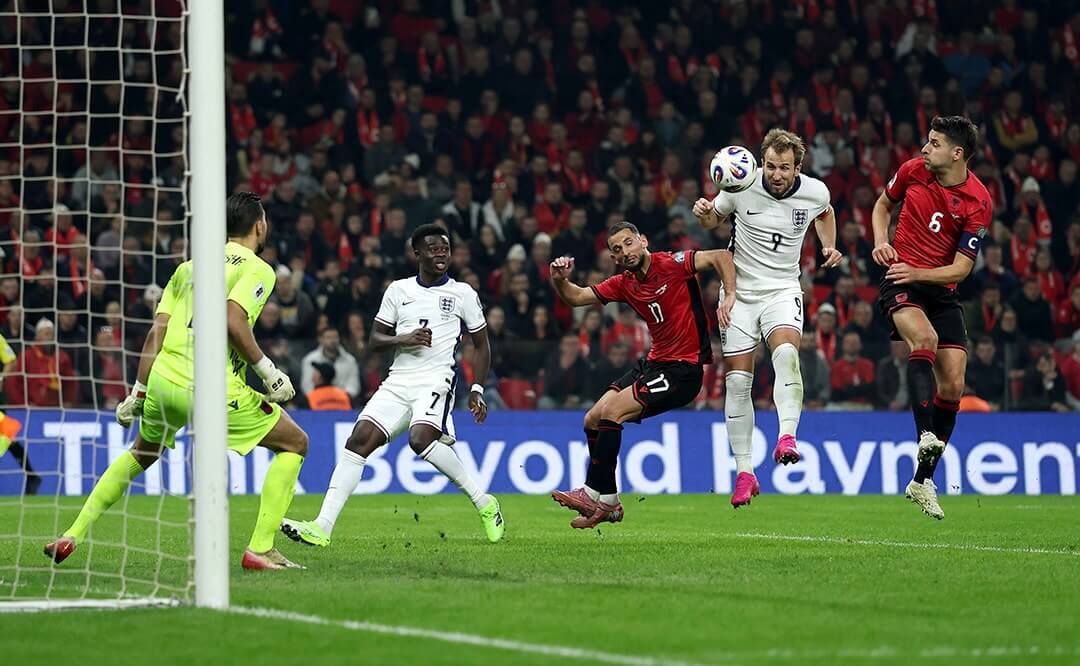
This is not a sentence I write lightly, but with barely seven months to go, it feels like an act of public service – a duty, really – to offer fair warning. There is a good chance that England will win the World Cup in New York and/or New Jersey next summer. We do not know what the consequences of that might look like. But it is probably worth stocking up on tinned goods and buying a fierce Alsatian just in case.
A lot can change between now and June, obviously, but noted Englishman Thomas Tuchel led his team to a flawless qualification campaign: eight games, eight wins, zero goals conceded. Thanks to his policy of radical honesty, he seems to have found a way to leave out some of his more famous players in service of the team itself, which is harder for England to understand than it should be.
Just as importantly, the field of outstanding rivals is relatively thin. Argentina should be full of confidence, but the last team to retain a World Cup was Brazil in 1962. The odds are against Lionel Messi, just as time is against Carlo Ancelotti, who has less than a year to turn Brazil into a coherent force. He is showing promise, but he does not have long. Spain may well be the most fluent team; France has the finest collection of talent. But England may well have the best mix.
If you want a caveat/glimmer of hope, it is this: the tournament will be packed with middleweight teams who can pose anyone a problem. Would you want Erling Haaland’s Norway in a knockout game? Or Moisés Caicedo’s Ecuador, or Achraf Hakimi’s Morocco? No. Football’s globalization has strengthened countries who might once have been makeweights at the same time as it has hollowed out traditional powers. The threats, these days, come from across the globe.
A Brand New Shop, Some Brand New Gear 🎁
We're thrilled to unveil the new Men in Blazers store where we'll continue to releasing apparel, accessories, essentials, and some very special collabs.
Reading Material 💻
Everyone loves rugby-themed corporate seminars
I’ve always been a big Mauricio Pochettino guy
A friend of mine trained with the All Blacks. It hurt.
What’s it like to judge the Booker Prize?
The amazing Sid Lowe on the Basque Country’s friendly with Palestine
Games to Watch 📺
If there is one caveat to the idea that Arsenal should now be regarded as champions-in-waiting – well, in addition to the presence in Manchester of an enormous viking warlord – it is the sense that Mikel Arteta’s team’s fixture schedule, between the October and November international breaks, was relatively kind. That changes now: there’s a North London Derby on Sunday, followed by a trip to Chelsea. The slope only gets steeper.
🏴 Arsenal vs. Tottenham (Sunday, 11:30 a.m. ET, Peacock)
And speaking of derbies, the best of the weekend is the Derby della Madonnina, the game that pits European soccer’s two great housemates, AC Milan and Inter Milan, against each other. There are signs this season that the balance of power in the city is starting to shift. Inter has been the more successful for some time – two Champions League finals in three years – but Max Allegri has given AC Milan both grit and purpose.
🇮🇹 Inter Milan vs. AC Milan (Sunday, 2:45 p.m. ET, Paramount+)
Correspondents Write In ✍️
I was very touched this week by the kindness and – more than anything – the enthusiasm with which so many of you wrote in to suggest places to eat in Boston. My list of recommendations currently includes (but is not limited to) Lehrhaus, Cutty’s, Sarma, Select Oyster Bar, Audubon Bar, Mamma Maria, Neptune Oyster, Mike & Patty’s and Gracie’s Ice Cream parlor. We’re in Boston for a maximum of 36 hours. I may spend most of the show napping, but please keep them coming.
There was also an uplifting outbreak of common sense, as exemplified by Ben Baer. “I think it’s natural that most players require at least half a season to get adjusted to a new league and teammates, regardless of sport,” he wrote of Florian Wirtz. “He is 22, living in a new city that doesn’t speak his language, with zero German teammates, a locker room of adult high-performers that he does not know, and he is expected to perform at the highest level out of the gate. Players are human and 22-year-olds are still growing up. Those who perform right away at that age are the exception, not the rule.”
It’s very hard to argue with any of that, Ben, although I may be able to garnish it a little. I was last at Anfield for the Atlético Madrid game. Afterwards, I was loitering around the tunnel leading from the changing rooms, when Wirtz walked through. He was followed by his mum and dad. That alone tells you the stage he is at in life.
Michael Simmons has been in touch, too, to reprise the rumbling debate comparing the Premier League’s competitive balance with various forms of what some people – not me, I should say – refer to as “the gridiron.” “The parity lesson is to be learned from the NFL, where more competition makes for a more compelling product,” he writes. “A more competitive Premier League will not be going the way of the Pac-12. Rather, the Champions League will reflect the college football landscape, wherein teams from “lesser leagues” will be increasingly far removed from any consistent ability to compete with the big teams.”
This makes sense to me. I’ve always found it odd that the Premier League used the NFL as its inspiration in so many ways – television deals, commercialization, fan experience, even cheerleaders, an experiment that did not turn out to be suited to the British weather – but never once seemed to notice that it relies on an innately communal approach. That has its drawbacks, of course, but that the Premier League seemed blind to it perhaps speaks to just how alien that aspect is.
That’s all for this week. I’ll be at Anfield on Saturday, so I hope that you all have far less stressful and likely disappointing weekends than me. And remember: if you want to help my bid to eat all of the food in Boston, or if you have questions or queries or sundry comments, I’d love to hear from you. [email protected] is the nice, catchy email.
Take care,
Rory
All the news that matters to your career & life
Hyper-relevant news. Bite-sized stories. Written with personality. And games that’ll keep you coming back.
Morning Brew is the go-to newsletter for anyone who wants to stay on top of the world’s most pressing stories — in a quick, witty, and actually enjoyable way. If it impacts your career or life, you can bet it’s covered in the Brew — with a few puns sprinkled in to keep things interesting.
Join over 4 million people who read Morning Brew every day, and start your mornings with the news that matters most — minus the boring stuff.
